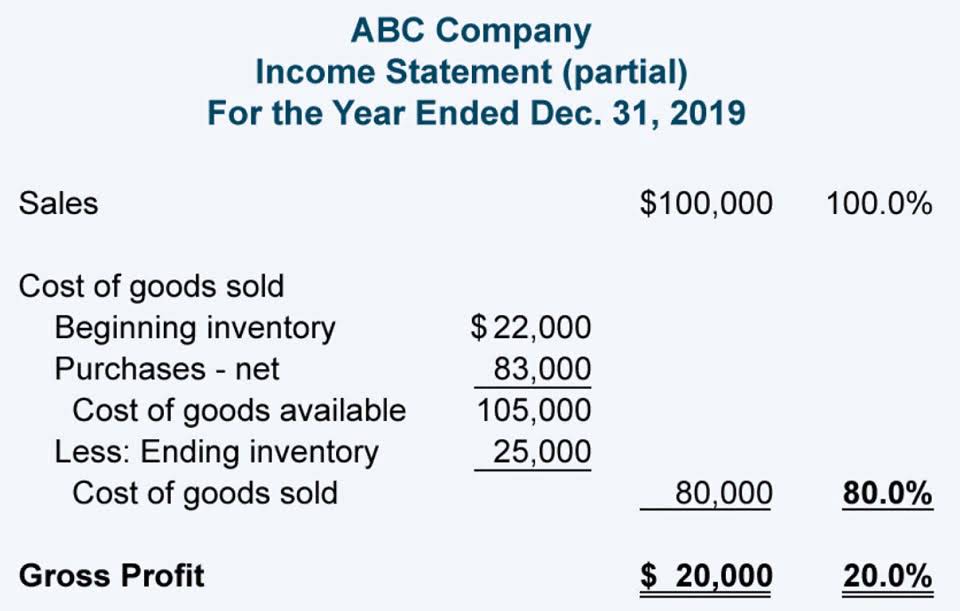Bookkeeping
Accounting Overview, Principles, Examples, Importance, & Facts

For instance, cost accounting lets you know how much money it takes to create a physical product or deliver a service. This makes it easier for investors to analyze and extract useful information from the company’s financial statements, including trend data over a period of time. It also facilitates the comparison of financial information across different companies. Accounting principles are the rules and guidelines that companies and other bodies must follow when reporting financial data. These rules make it easier to examine financial data by standardizing the terms and methods that accountants must use.
- Accounting software does a lot of the heavy lifting (such as keeping track of debits and credits) for you.
- Credit accounting involves analyzing all of a company’s unpaid bills and liabilities to make sure that a company’s cash isn’t constantly tied up in paying for them.
- Our premium package even includes tax filing, which makes all accounting tasks completely automated.
- In simple words, Green Accounting is a kind of accounting that tries to take into consideration the environmental costs in the calculation of the operating income of an enterprise.
- Thus, a motor vehicle account will show the value of a motor vehicle owned by a business, not its make or mileage, etc.
Who must abide by GAAP?
- The Great Depression in 1929, a financial catastrophe that caused years of hardship for millions of Americans, was primarily attributed to faulty and manipulative reporting practices among businesses.
- Technology in accounting also includes automation and integration with IT systems.
- Accounting principles are the rules and guidelines that companies and other bodies must follow when reporting financial data.
- The basic objective of accounting is to provide the desired information to the owner as well as to all other interested parties i.e. investors, creditors, employees, financial institutions, government etc.
- Much of the reporting of such information is voluntary, especially in the United States.
Accounting success relies on generally accepted accounting principles (GAAP), up-to-date statements, and the accounting cycle. You can choose to manage your business accounting by hiring an in-house accountant or CPA. This can be a great option if you want to ensure your books are in order, and that your company’s financial information is accurate, but it does come with bookkeeping services in sacramento some drawbacks. For one thing, the cost of hiring someone like this can be a substantial burden on your business’s finances. U.S. public companies are required to perform financial accounting in accordance with generally accepted accounting principles (GAAP). Their purpose is to provide consistent information to investors, creditors, regulators, and tax authorities.
Conflict Between Accounting Principles

Bookkeeping records individual transactions while accountants report on the bigger financial picture. They work together in a streamlined process where bookkeepers prepare financial data and accountants compile it into reports. It is a means through which information about a business entity is communicated. Through the financial statements – the end-product reports in accounting – it delivers information to different users to help them in making decisions. Accounting software allows you to do basic tasks such as tracking inventory, invoicing and payments, and generating reports on sales and expenses.
Effective Accounting Practices To Adopt Immediately

The whole point is to give you an idea of what’s working and what’s not working so that you can fix it. Formal collaboration between the FASB and the IASB dates back to 2002, when the two entities formed a partnership known as the Norwalk Agreement. Under the agreement’s terms, the FASB and the IASB established the joint objective of developing accounting standards with international cross-jurisdictional compatibility. While GAAP accounting strives to alleviate incidents of inaccurate reporting, it is by no means comprehensive. Companies can still suffer from issues beyond the scope of GAAP depending on their size, business categorization, location, and global presence.

Accounting is the process of keeping accurate, detailed financial records, then analyzing and interpreting those records to draw conclusions about your past and future financial decisions. In the United States, generally accepted accounting principles (GAAP) are regulated by the Financial Accounting Standards Board (FASB). In Europe and elsewhere, International Financial Reporting Standards (IFRS) are established by the International Accounting Standards Board (IASB). Whether you’re looking to hire accountants or give them more tools, accounting software can help. These tools speed up report generation, tax filing, and payment management.
By understanding the financial health of their business, decision-makers can better allocate resources, set budgets, and manage risks. Accounting is a term that describes the process of consolidating financial information to make it clear and understandable for all stakeholders and shareholders. The main goal of accounting is to record and report a company’s financial transactions, financial performance, and cash flows. In most cases, accountants use generally accepted accounting principles (GAAP) when preparing financial statements in the U.S. GAAP is a set of standards and principles designed to improve the comparability and consistency of financial reporting across industries. These external reports must be prepared in accordance with generally accepted accounting principles often referred to as GAAP or US GAAP.


